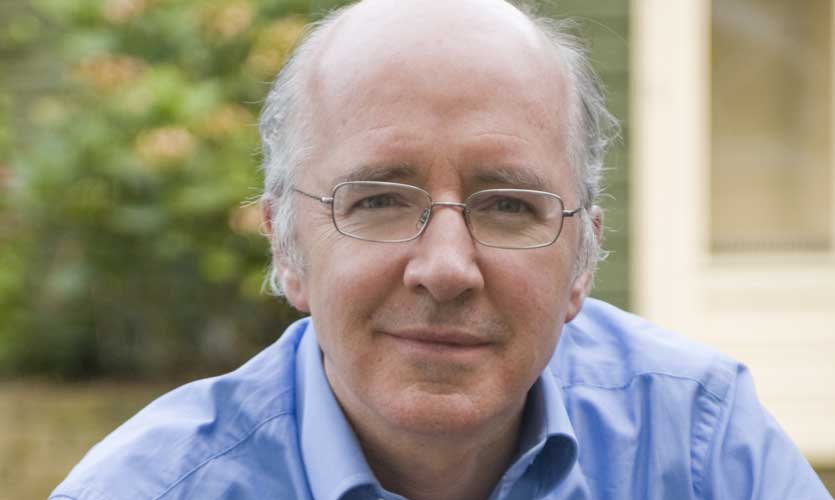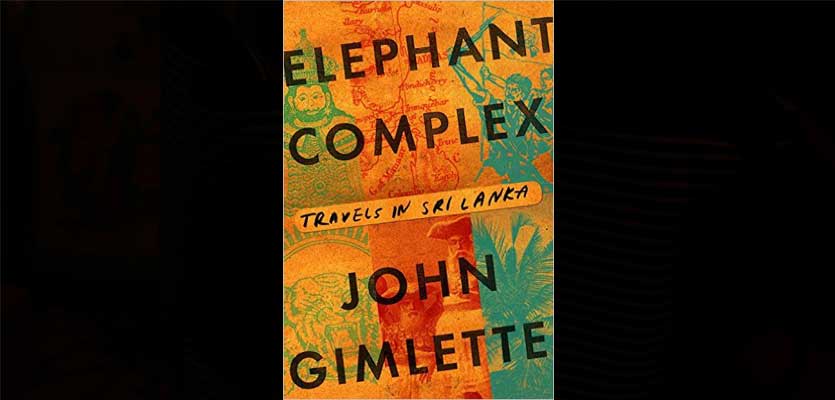Jan 09 2017.
views 511MEET THE AUTHORS OF FGLF 2017
The 8th edition of the Fairway Galle Literary Festival is back bigger than ever and will take place this week - from the 11th to the 15th of January 2017.
We brought you Dom Mee and Cathy Marie Buchanan last. This week it's John Gimlette.

An award-winning travel writer, Gimlette is the author of many travel books. Described as a ‘historian of the absurd’, Gimlette’s writing on his travels has been highly praised by many. In 2015, he published his book ‘The Elephant Complex: Travels in Sri Lanka’, documenting Sri Lanka’s emergence from 26 years of civil war.
You began travelling ever since you were 17. What sparked your love for travel?
As a family we’ve always travelled, and, at the age of 17, I crossed the USSR on the Trans-Siberian Railway. Travel-writing too is very much in the blood. On my mother’s side, my grandfather and great-grandfather were great amateur archaeologists, and their travels took them form Labrador to Palestine. On the other side, the Gimlettes were military surgeons, deployed around Asia. George Gimlette’s history of the Nepali royal family, published in the 1890’s, is still printed in India today. John D Gimlette’s ‘Malay Poisons and Charm Cures’ (1915) is also still in print, in Singapore, the unsurpassed textbook for all poisoners.
As a well-known travel writer, how does your travel writing differ from the rest?
Research and ‘context’. My books aren’t just the tale of my journey. I’m always interested in exploring the character of a place, and that means reading widely into the subject. I will usually have done two years research before setting out, trawling libraries and garnering contacts. By the time I arrive, I know what I want to see, and I have a loose-fitting structure already in place. Of course, there are accidents and adventures along the way, and it is these that bring the story to life. In Sri Lanka’s case, I travelled the country in historical order (or something like it) beginning with the reservoirs of the Anuradhapura period, and ending with the recent civil war. Amidst this broad structure, there are plenty of digressions, exploring cricket, elephants, caste, tea and other peculiarly Sri Lankan themes.
What’s the best way to travel?
I like to travel ‘close to the ground’, using public transport and staying with the locals. People are the most thrilling aspect of my journey. I like to think that everyone in this world has something interesting about them, and that it’s up to us to find out what it is. Sadly, the great and the good – the generals, the sportsmen and the ex-presidents – often make the least interesting companions, being so well-versed and defensive. It’s the surprising encounters that have often been richer: the drunks and bums, the Surinamese rebel, the philanderers, the bear-trappers in Labrador, and a homeless tramp in the Scottish Highlands. I remember one critic commenting that the only people I ever seemed to meet were oddballs and hucksters. Well, try being me; these are the people I meet on the road.
How do you pick which country you want to travel to next?
I’m looking for rich history, and a little adventure. Ideally it should also be a place that has not recently been portrayed in depth. Right now, I’m intrigued by Madagascar. Everybody knows about its lemurs, but what about its people? It seems they sailed across the Indian Ocean from Borneo at around the time of Christ, and these days the big crime is cattle rustling. How intriguing is that?
Your latest book ‘Elephant Complex’ focuses on Travels in Sri Lanka. What prompted you to choose Sri Lanka to be the focus of your next book?
There were two things. The first was that, in May 2009, my sister was on a fashion shoot in Galle. As the civil war was ending, I asked her to bring me as many SL newspapers as she could, and I read them all cover to cover. I was fascinated by the idea that here was an island (the size of Ireland) with a civil war at one end and a luxury tourist industry at the other. How had that happened? And what was a country like after 26 years of fighting? Was it still the paradise described by earlier writers? I had to find out.

At the same time, I became intrigued by a community of Sri Lankan Tamils living near me in London. There are over 8,000 of them in Tooting (which means that there are more Tamils in Tooting alone than there were ever Britons in Ceylon at the height of the Empire). This community arrived in the 1980s, and 1990s, and, although somewhat traumatized by war, they’ve created a little Jaffna.
What would you say was the best experience you had while you were in Sri Lanka?
There were lots of unforgettable experiences! Ascending Adam’s Peak, visiting the island of Delft, being one of the first outsiders to climb Thoppigala … But I also get a special thrill when my historical research springs into life. During my research into the Japanese raid on Trincomalee, on 9 April 1942, I’d read that a kamikaze plane had crashed into a British fuel dump deep in the jungle. Once in Trinco, I set off to see what I could find. It was all there, a mass of melted metal, and I still have a lump of black, vitrified sand, as a reminder of the passions of that day.
Have you ever experienced culture shock?
Yes, I feel culture shock very acutely, however well I have researched a place and however much I think I know what to expect. Very often it means that I don’t really enjoy the first week of my travels, and I just hope the feeling will pass. Even somewhere like Paraguay – which I adore – does this to me, and I feel horribly alien and out of place. But the feeling does pass, or I get used to it – and so it’s not really a challenge at all. That leaves just loneliness. I can’t stand being by myself for more than a day or so, and begin to crave company – almost any company. Perhaps this is an advantage to a travel-writer.
Having travelled over 60 countries, what is the one place that you would like to revisit?
It has to be Sri Lanka. Other places may be wilder (the Guianas) or more extraordinary (Paraguay) but nowhere has the diversity of pleasures that SL has.
What are your travel essentials?
I always pack a tin of sardines in countries where food might become tricky. They are good for emergencies but just sufficiently revolting that you won’t be tempted to eat them prematurely.
Having written a book based in Sri Lanka, how does it feel to return to Sri Lanka for the Literary Festival?
A year ago, I’d have been wary about taking my portrayal of Sri Lanka to a Sri Lankan audience. However, since then, I have addressed perhaps a dozen Sri Lankan audiences in the UK, and I have been constantly surprised by their receptiveness. There is a genuine intellectual curiosity for the views of an outsider, and the exchanges that we have shared have been a lot of fun. I am therefore really looking forward to Galle!
Want to get yourself tickets to meet John Gimlette as he takes you through his travel adventures?
Box office is now open! Tickets available online at www.mydeal.lk/fairway-glf- 2017 or at the box offices mentioned below;
Colombo - 740, Galle Road, Bambalapitiya.
Hotline number 0717 040011,
Galle - 25, Leyn Baan Street Galle Fort
Hotline Number 0717 020011
Open Mon - Fri (9-6.30pm) , Sat (9-5pm)
Closed: Sunday and Mercantile Holidays
0 Comments